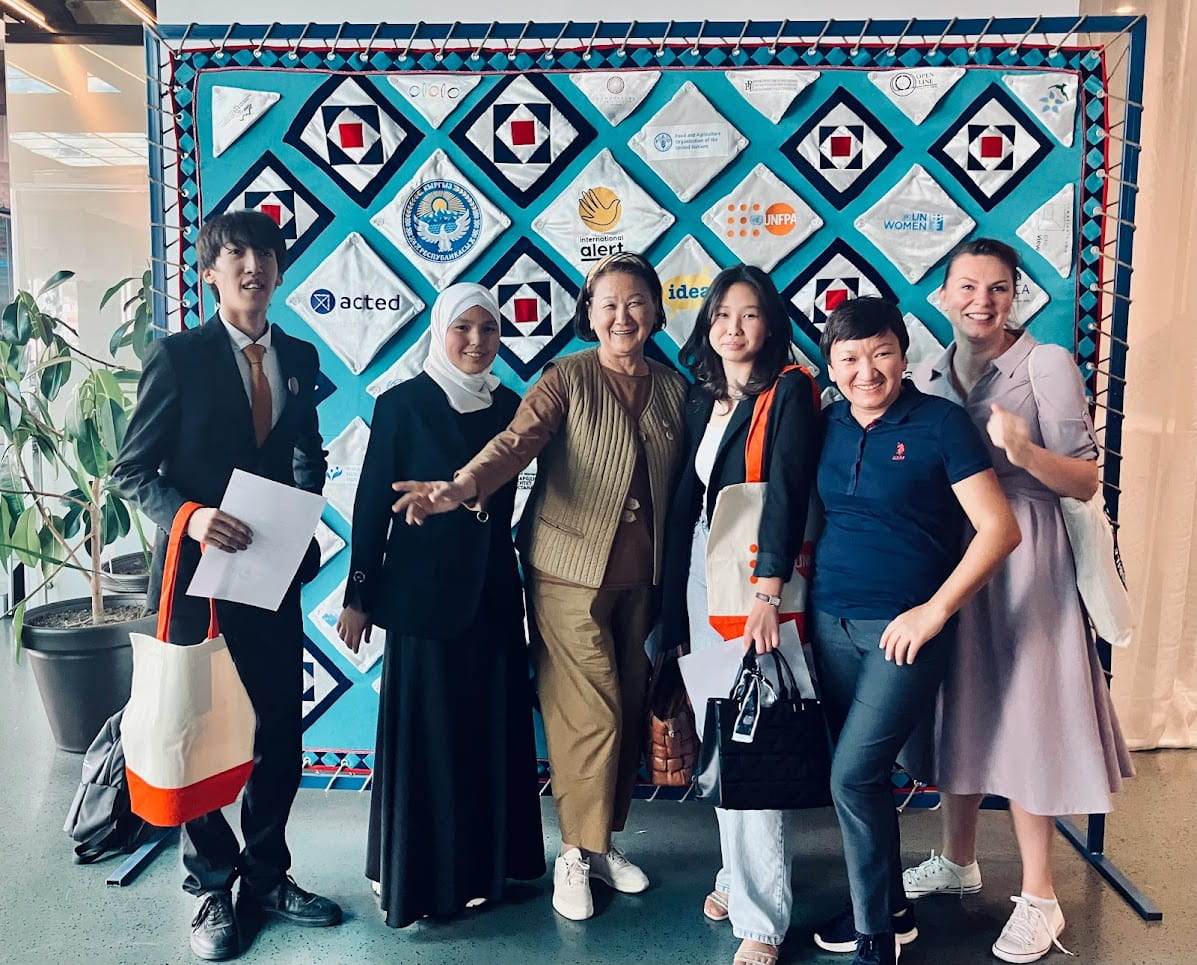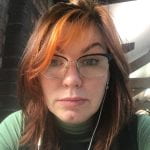Latest posts
- Register now: MAP International Online Conference 2025 1 June 2025
- Policy brief: Gira Ingoma book and policy brief: “The Culture We Want, for the Woman We Want” 28 November 2024
- Manuals and toolkits: GENPEACE Children’s Participation Module in the Development Process 13 November 2024
- Journal article: [Working Paper] Gira Ingoma – One Drum per Girl: The culture we want for the woman we want 30 October 2024
- Curricula: Beyond Tradition: Psychosocial Model 30 October 2024
- Curricula: Beyond Tradition Module: Revitalizing Lenong as a Model for Teaching Betawi Arts 30 October 2024
- Curricula: Beyond Tradition: Lenong Revitalisation as a Model for Teaching Betawi Cultural Arts 30 October 2024
- Beyond Tradition Lenong Performance “RAWR…! Kite Kagak Takut” 30 October 2024
- Journal article: [Working Paper] Facing Heaven – Déuda Folklore & Social Transformation in Nepal 30 October 2024
- Curricula: Building Community Curriculums 24 October 2024
- The Magic of Theatre Project Documentary 24 October 2024
- The Magic of Theatre Performances in 2024 24 October 2024
Foundation for Tolerance International (FTI) at the Yntymak Week Celebrating International Peace Day
28th September 2023
Author
On September 19, 2023, the Foundation for Tolerance International (FTI) presented the MAP project at the Yntymak Week (Cohesion Week). For the first time, the event unified the voices of the Peacebuilding Hub of Kyrgyzstan and other actors, such as CSOs, formal and informal groups, INGOs, UN, IOs, government, media, grassroots activists, influencers, local leaders, local and national governments, and the business community. The Yntymak Week aligned with International Peace Day, the UN System Leadership Framework, and Key National Concepts of the Kyrgyz Republic.
During the session, project participants, including MAP School Clubs and young researchers, shared insights into using arts-based methods for conflict resolution and promoting dialogue between youth and adults.
The young participants presented the methodology of ‘Theatre of the Oppressed’ and shared their experience of Forum Theatre performances concerning their problems at different schools in Kyrgyzstan. An interactive session employing the ‘Image Theatre’ method was conducted, where the young participants discussed the issue of child labour. Attendees of the session were invited to take on roles as directors and actors of the ‘Image Theatre’, in the act of which they presented and discussed problems of theft in transport and school bullying.
In addition, the young participants shared their experiences about employing various art forms within the project, namely the drawing competition addressing the problem of violence. Drawings from participants from four regions of Kyrgyzstan—Baken, Bishkek, Jalal-Abad, and Osh—were displayed to the audience. The stories depicted in the young people’s drawings were narrated during the presentation, accompanied by links to two virtual exhibitions of participants’ artworks.
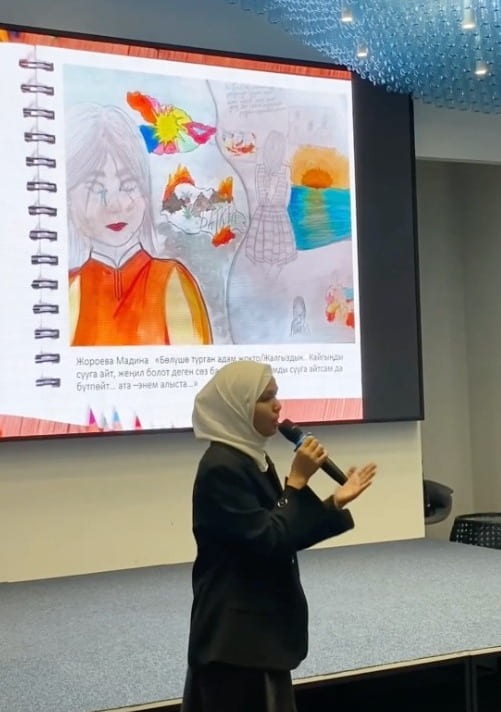
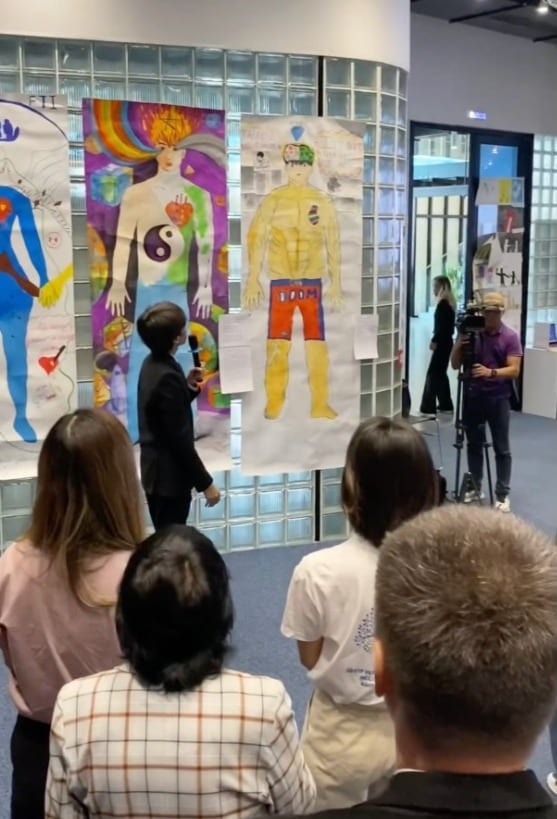
During the session, a brief introduction to the ‘Body-mapping storytelling’ methodology was provided, which was also implemented in the project. Body mapping is an innovative arts-based technique that facilitates the storytelling of young people and constitutes a promising tool for enabling self-analysis of experiences and ‘integrating’ them in peacebuilding and conflict resolution settings. Three body maps were exhibited, accompanied by narratives and poems by the authors about the process, experiences, and challenges they faced.
At the end of the session, MAP young participants addressed a question: “How has the project changed you?” The participants talked about the significant impact of the project on their relationships with peers, teachers, and parents, as well as how it greatly shaped their career choices.
Nazmiya: I have changed a lot. If you look at whom I was at the beginning and who I am now, there is a significant difference. I used to be very shy and didn’t want to share my thoughts and experiences with anyone. I am not saying that I became completely different, but if before, I felt like a fish in an aquarium, now I feel like I am in the sea among similar fishes.
MAP young people
Cholponai: I joined the MAP project at an age when I had to choose a profession. People would have asked me: “What do you want to study?” and I had no idea. But participating in the project helped me choose a profession. I started thinking about my inner state and the internal problems of other people and realised that I want to help them resolve them. But to help in the right way, you need to know how to do it. And I chose the profession of a psychologist.
MAP young people
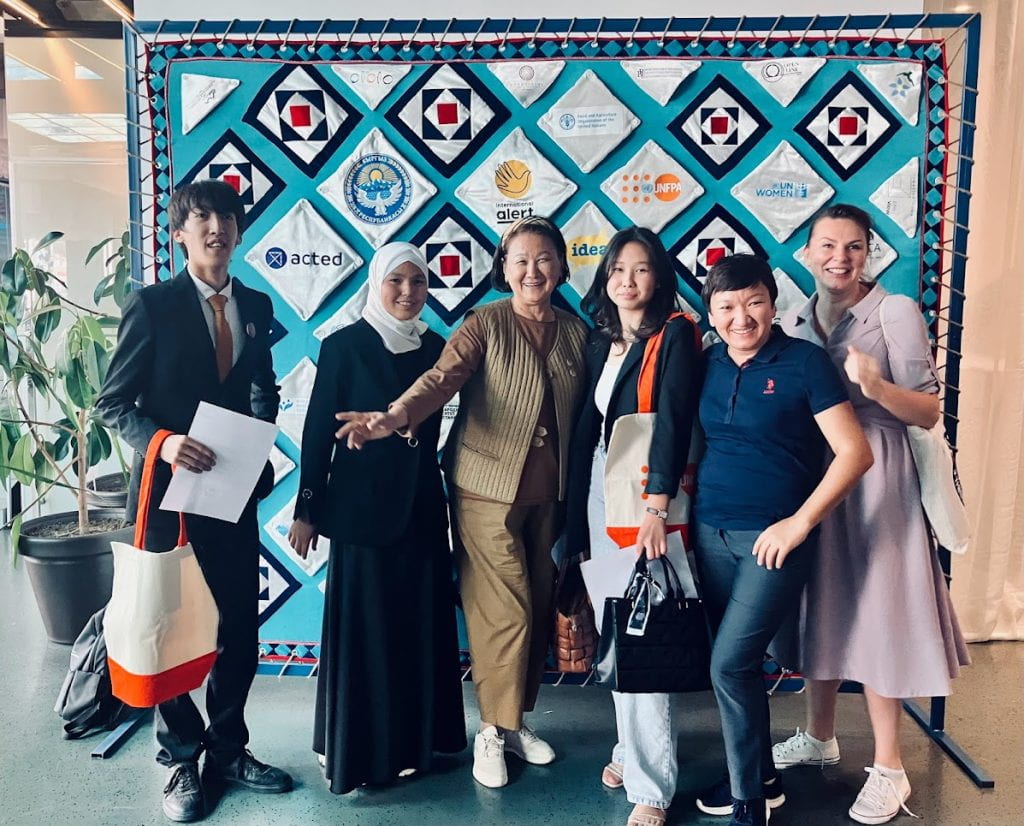
Check out this video of the event created by FTI:
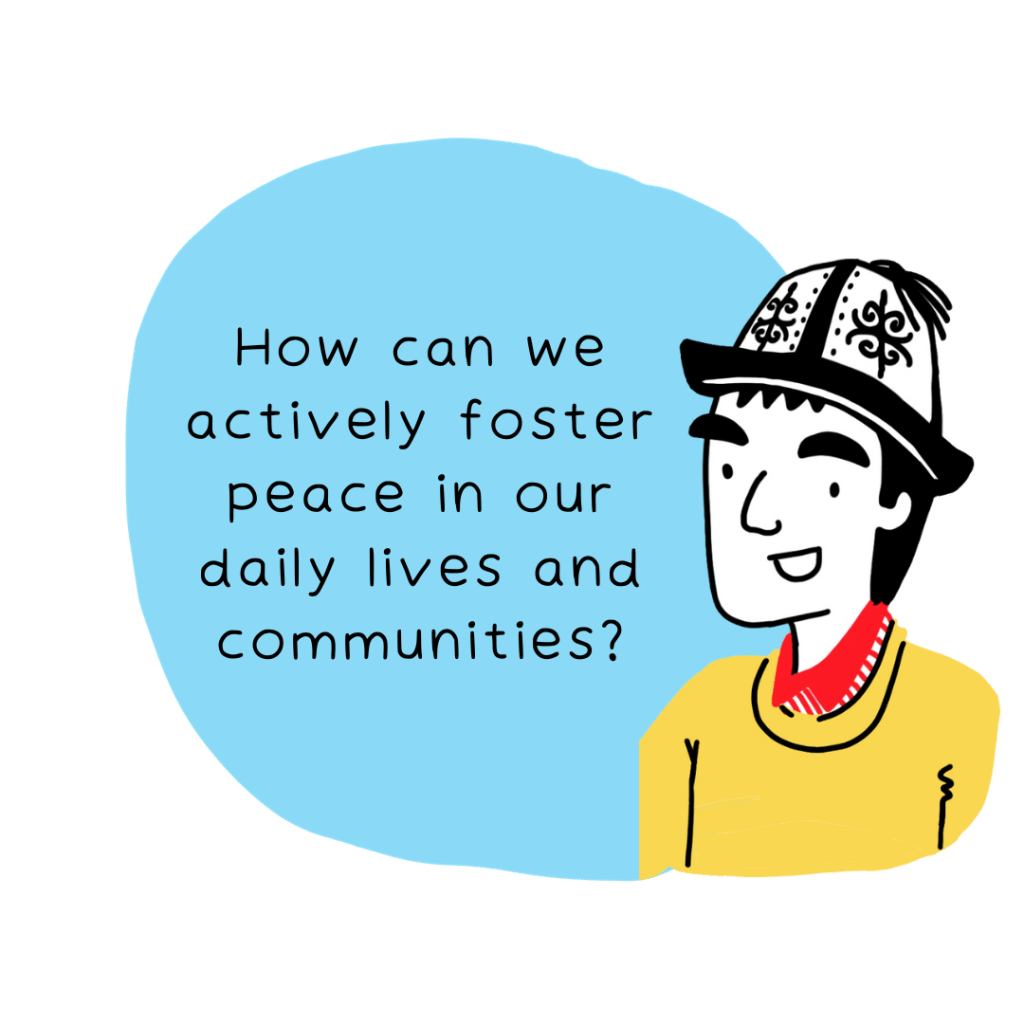
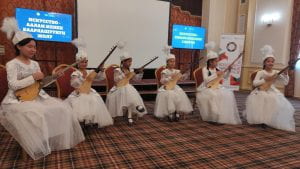
Dialogue through Art
Advocacy for priority youth issues, raising topics using arts-based tools and making recommendations at regional and national levels.
